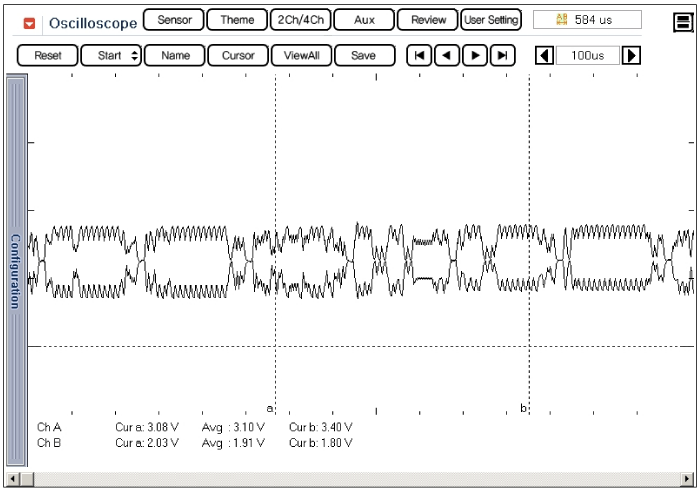
Several control units are applied to electronically controlled vehicles. These units perform each control with informations from various sensors. Thus, sharing signal information from sensors is needed, so CAN communication type whose communication speed is high and insensitive to electrical noise by spark generation is adopted to controlling power-train(ECM, TCM,ESP ECM, ABS ECM) As sharing signals of engine speed, APS, gear shifting, torque reduction in ESP and various modules, active control is performed.
Checking CAN communication, under detecting condition, if an CAN communication error between ECM and TCM is detected . ECM sets U0101.
Item | Detecting Condition | Possible cause |
DTC Strategy |
•
Check CAN message from TCM | 1. TCM faulty 2. CAN communication line between ECM and TCM |
EnableConditions |
•
Engine Run Time ≥ 2sec.
•
Ignition Voltage ≥ 11V | |
Threshold value |
•
CAN communicatin error with TCM | |
Diagnosis Time |
•
Continuous | |
MIL On Condition |
•
2 driving cycle |
Communication Format | DIGITAL "0" | DIGITAL "1"( BUS IDLE ) | CAN Communication Line Resistance | |||
HIGH | LOW | HIGH | LOW | ECM | Cluster | |
CAN 2.0B | 3.5V | 1.5V | 2.5V | 2.5V | 120Ω (20℃) | 120Ω (20℃) |

Fig.1) Can communication waveform at idle
Monitoring CAN HIGH and LOW simultaneously is important in monitoring CAN communication waveform. When CAN HIGH signal rise to 3.5V and LOW signal drops to 1.5V - voltage difference between HIGH and LOW signal is 2V - at BUS IDLE state(DIGITAL "1") whose reference voltage is 2.5V, "0" is recognized. Besides, comparing HIGH and LOW signal if opposite waveform is detected with the reference voltage of 2.5V, Check if current cam signal transfers correctly.
Continuous "0"signal above 6BIT means the occurence of error in CAN communication. 1BIT is easily distinguished as calculating the time when "SOF"(START OF FRAME) which notifies the start of frame occurs. Check if "0"signal above 6BIT is detected continuously when monitoring CAN communication waveform.